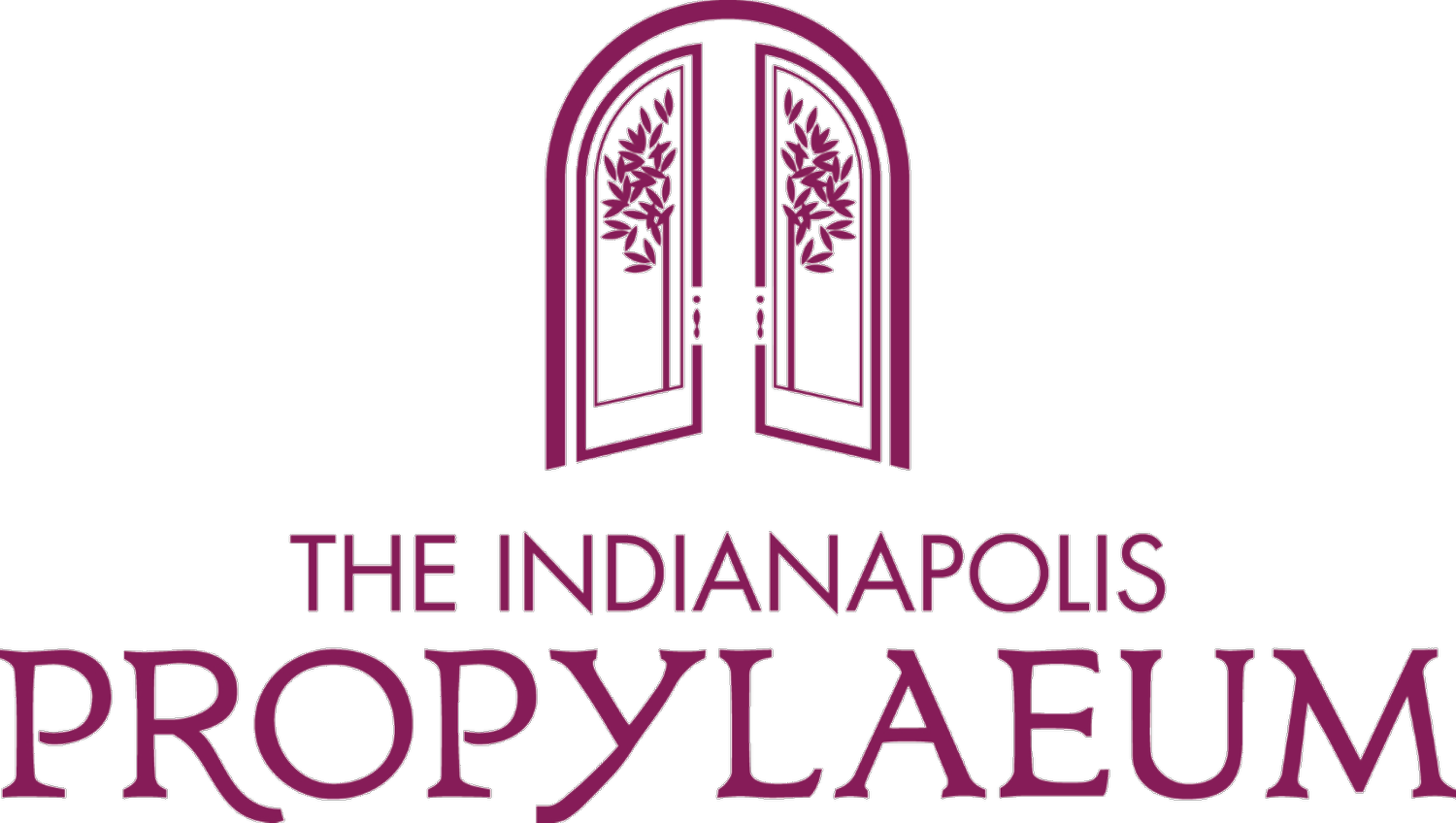Founding
On June 6, 1888, a group of visionary women in Indianapolis formed a corporation with a bold mission: to “buy, hold, acquire…a building to be used for literary, artistic, scientific, industrial, musical, mechanical, and educational purposes… to provide a center for cultivation for the public, and particularly the women of Indianapolis.” This marked the founding of The Indianapolis Propylaeum, an organization committed to advancing women's leadership and cultural engagement.
The Board of Directors was selected, and May Wright Sewall—a nationally renowned educator, reformer, and suffragist—was appointed as the organization’s first president. It was Sewall who had first proposed the idea of such a space, envisioning it as a gateway to opportunity and enrichment for women. Appropriately, the name Propylaeum—derived from the Greek word for “gateway”—was chosen. The official seal of the organization was inspired by the Propylaea, the grand entrance to the Acropolis in Ancient Athens, symbolizing the organization’s dedication to intellectual and cultural pursuits.
In December 1888, the Propylaeum purchased its first property at 17 East North Street, located at what is now the World War Memorial Plaza in downtown Indianapolis. A dedication ceremony for the building was held in 1891, establishing the Propylaeum as the city’s first women-led cultural and civic institution. It quickly became a hub for lectures, concerts, club meetings, and advocacy work, and played a key role in the women’s suffrage movement and the broader cultural life of the city.
The organization would eventually move to its current location—a stately 1890s mansion at 1410 North Delaware Street—where it continues to serve as a historic home for women’s leadership, arts, and heritage in Indiana.
The Mansion
The Schaf-Schmidt Mansion, now the home of the Indianapolis Propylaeum, was built in 1890–1891 for John W. Schmidt, a prominent Indianapolis beer brewer and owner of the Schmidt Brewery. Designed in the Queen Anne style, the mansion features characteristic turrets, gables, and ornate woodwork, reflecting the architectural grandeur of the era.
Located at 1410 North Delaware Street, the home originally served as a private residence for the Schmidt family before being sold to Herman Schaf, another local businessman, in the early 20th century. The mansion remained a private residence for several decades until it was acquired by the Indianapolis Propylaeum in 1923.
After the Propylaeum’s original building at 17 East North Street was demolished to make way for the World War Memorial Plaza, the organization relocated to the Delaware Street mansion. Since then, the historic home has served as a hub for arts, culture, and women’s leadership in Indianapolis. The building is listed on the National Register of Historic Places and remains a beautifully preserved example of late 19th-century architecture and civic legacy.
Our Founder
May Wright Sewall (1844–1920) was a nationally respected educator, suffragist, and civic leader whose vision helped shape the cultural and intellectual life of Indianapolis. Best known as the founder and first president of the Indianapolis Propylaeum, Sewall believed deeply in creating spaces where women could gather, learn, and lead. Her dream became reality in 1888 with the founding of the Propylaeum—an organization designed to serve as a "gateway" to opportunity for the women of Indianapolis.
Sewall’s impact extended far beyond the Propylaeum. She co-founded the Art Association of Indianapolis (the forerunner to the Indianapolis Museum of Art at Newfields) and the Girls’ Classical School, where she served as principal for many years. She was a powerful force in national and international women’s movements, serving as president of the National Council of Women of the United States and working closely with global leaders to advance women’s rights and education. Locally, she is also credited as a founder of both the Indianapolis Woman’s Club and The Contemporary Club—both of which are still active today.
A passionate orator and prolific writer, Sewall brought international recognition to Indianapolis through her advocacy for equality and social reform. Her leadership exemplified the values the Propylaeum continues to uphold: education, community, culture, and women’s empowerment.



